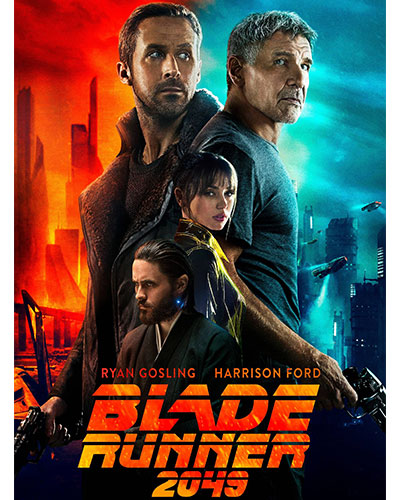What’s to watch on Netflix?
- 20 Apr - 26 Apr, 2024

Before the review, first some backstory to give it context.
Given my antipathy to over-hyped sequels, I was not quite happy to see a sequel to Blade Runner. Like Star Wars – which is so far wrecking the franchise – a continuation of Blade Runner, an all-time hailed cyberpunk, could lead to one of two results: utter disaster, or epic acclaim.
The addition of director Denis Villeneuve wasn’t enough to satisfy my misgivings; notwithstanding his excellent track record (Prisoners and Sicario are now on my list of cinema greats), his Arrival felt minimal and weightless despite the Oscar acclaim.
My reasons come with a kicker: I grew up in the 80’s – a time when cyberpunk was the rage, especially in Anime, and I also had a clear inkling of Ridley Scott’s mindset. The first Blade Runner (now called the Theatrical Edition), came with an atrocious noir-ish voice-over and an alternate ending. When I saw the Director’s Cut, I felt it was more cold and appealing. The Final Edition, which came out a few years ago, had more visual effects put-in, along with a teal-orange (i.e. Michael Bay-like) colour-grade that took away some of the original negative’s gray ambiance.
Cyperpunk itself is a monstrous undertaking. So far a handful of directors – Yoshiaki Kawajiri (Cyber City Oedo 808), Katsuhiro Otomo (Akira), Masamune Shirow (Ghost in the Shell), the Wachowski Bros (The Matrix series) and Steven Spielberg (Minority Report) – pulled off a perfect execution. An adaptation of Ghost in the Shell tanked this year; its aesthetics all over the place. Back in the day, Ridley knew cyberpunk’s main necessity: hyper-styled hard sci-fi, overlooking technologically-overrun, cramped human life.
When in Villeneuve’s film, which is set further in the future and continues the story, someone asks what a tree is, and how they had not seen one, we feel a strange tinge of déjà vu. In the background, people rush to and fro; their surroundings, busy. Neon and metal edges almost bleeding into their lives. That is when you know Villeneuve gets it – the feeling in your gut, boiling over with excitement.
The story isn’t a complex one. The Tyrell Corporation, which made the original Replicants – synthetic humans bred for off-world labour, with limited lifespans – is bankrupt. In its place is the Wallace Corporation, a far eviler enterprise run by a blind man called Niander Wallace. Similar to every mad man, he wants to uncover the holy grail of Replicant research: reproduction.
K (Ryan Gosling – a sight for sore-eyes, who, for once, excellently fits in role), is a Replicant Blade Runner – an officer who hunts down and kills rouge Replicants. His investigation leads him to Rick Deckard (Harrison Ford; already overhyped in the trailers) – the last film’s main lead, and an enticingly put-together story solidly welds both actors into a simple, coherent and engaging plot.
The story by Hampton Fancher (screenplay by Fancher and Michael Green) isn’t unique. The direction, and the slow, winding pace, however, makes it one of the best sequels in the history of cinema. Villeneuve’s grasp of the material, as well as the ambience and face, is near-perfect.
Some long passages, and the climatic action sequence could have been shorter, but hey, nothing is perfect – not Replicants, and certainly not the film-makers. This is as close as they come.
COMMENTS